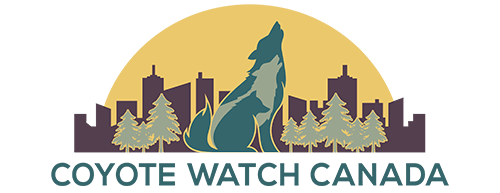
Being a wildlife rehabilitator is about more than helping injured and orphaned wildlife. It’s also about educating the public on how to successfully share the same space with them. One of the most misunderstood species of wildlife is the coyote. Though coyotes are shy creatures with superior parenting skills, and complex social structures worthy of our respect, they are undeserving victims of media sensationalism depicting them as ruthless killers who can’t wait to eat your dog and children. Coyotes play an important role in maintaining a healthy ecosystem by helping to keep a prey/predator balance. Coyotes are being forced to live in close proximity to urban development, which can lead to conflict. Understanding coyote ecology and how to wildlife proof your property solves many of these conflicts. Knowing what to do when you encounter a coyote helps to keep the public and our pets safe.
Wild Earth Refuge believes by working together, peaceful co-existence with coyotes is possible. It’s for that reason, we have partnered with Coyote Watch Canada who have shown a history of excellence in offering non-lethal co-existence strategies to many municipalities. “The City of Niagara Falls, Ontario in partnership with Coyote Watch Canada, enacted one of the very first Coyote Feeding By-Laws for Eastern Canada. Other communities across Ontario are now following the successful model of Niagara Falls by drafting their very own Comprehensive Coyote Strategy Plan including similar tools for co-existence.” Whitby is one of those municipalities who have partnered with Coyote Watch Canada implementing a co-existence strategy. Part of that strategy is the development of The Coyote Response Team Durham (CRTD). In partnership with the CRTD, founder of Wild Earth Refuge, Kelli Polsinelli promotes universal preservation, (PUP) for short. Conducting outreach, education and “ongoing field investigations to identify wildlife attractants or “hot spots” at locations where humans and wildlife interface in the Durham area.” The region of Durham can contact the Coyote hotline at any time with sightings and encounters, or concerns at 905-931-2610.
To get more information about coyotes and the continued success of the Coyote Watch Canada Team click here.

